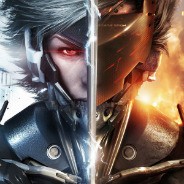Ex.1 Answer the questions to the text:
1. What do we study state systems for?
2. Are state systems the same in different countries?
3. Can the state system of a particular country undergo changes?
4. What types of state systems do you know?
STATE AND POLITICAL SYSTEM OF RUSSIA
The Russian Federation was established by the Constitution of 1993. Under the Constitution Russia is a democratic federative law-governed state with a republican form of government. The Russian Federation consists of 83 constituent entities (republics, regions, and territories, cities of federal significance, the autonomous regions and one autonomous area, which have equal rights). The authorities of the constituent entities have the right to pass laws independently of the federal government. The laws of the subjects of the Russian Federation may not contradict federal laws. In case of conflicts between federal and local authorities, the President uses consensual procedures to resolve the problem.
In the event a consensus is not reached, the dispute is transferred to the appropriate court for its resolution. The President of the Russian Federation is the head of state. He is the Supreme Commander-in Chief of the Armed Forces of the Russian Federation. The President organizes and heads the Security Council of Russia, signs treaties, enforces the law. The President appoints ministers, who are subject to approval by the Federal Assembly. He nominates judges to the Constitutional Court, the Supreme Court and the Higher Arbitration Court of the Russian Federation, and the Procurator-General of the Russian Federation. The President has the right to introduce the state of emergency within the Russian Federation. He announces pre-term elections. He has the right to suspend the acts of executive bodies of the Russian Federation members, if they contradict the Constitution of the Russian Federation, federal laws or the international obligations of the Russian Federation.
State power in the Russian Federation is exercised on the basis of its separation into legislative, executive and judicial branches. Each of them is balanced by the President. The legislative power is vested in the Federal Assembly (the Parliament). It consists of two chambers: the Federation Council (the upper chamber) and the State Duma (the lower chamber). The two chambers of the Federal Assembly possess different powers and responsibilities, the State Duma being the more powerful. The Federation Council includes two representatives from each constituent entity of the Russian Federation, one from the representative and one from the executive bodies of the subject of the Federation. The State Duma consists of 450 deputies and is elected for a term of 4 years.
In December 2008 the term was extended to 5 years. Each chamber elects a chairman (the Speaker) to control the internal procedures of the chamber. The Federal Assembly is a permanently functioning body. The Federation Council and the State Duma sit separately. Their sessions are open (public). Each of the Houses forms committees and commissions and holds hearings on the appropriate issues. Bills may be initiated by each chamber. But to become a law a bill must be approved by both chambers and signed by the President. The President may veto the bill. The executive power is exercised by the Government which consists of the Chairman of the Government (the Prime Minister), deputy chairmen and federal ministers.
The Prime Minister is appointed by the President with the consent of the State Duma. Should the selected candidate be rejected three times, the President appoints the Prime Minister himself, dissolves the State Duma and announces new elections. The Prime Minister proposes to the President his candidates for the offices of federal ministers. The Government presents a draft budget to be discussed by the State Duma and provides its implementation as well as realization of financial, credit and monetary policies. It carries out measures to ensure legality, rights and freedoms of citizens, protects property, public order and combats crimes.
130
139
Ответы на вопрос:
Реши свою проблему, спроси otvet5GPT
-
Быстро
Мгновенный ответ на твой вопрос -
Точно
Бот обладает знаниями во всех сферах -
Бесплатно
Задай вопрос и получи ответ бесплатно

Популярно: Английский язык
-
Летосфералық.тақталардың.ерекшелігі...
 dasha301200808.04.2023 00:41
dasha301200808.04.2023 00:41 -
B. Underlined the correct item. 1. Dad’s muscles relaxed/went soft after...
 БПАНган19.06.2022 19:43
БПАНган19.06.2022 19:43 -
Ex 1. Open the brackets. Use the correct verb form (Past Simple, Past...
 Mouse12520.05.2023 10:55
Mouse12520.05.2023 10:55 -
Відповіді на питання 1) How can conflicts in the family be solved? 2)...
 deniskupriyano28.03.2022 17:16
deniskupriyano28.03.2022 17:16 -
УМОЛЯЮ! Fill in the correct form of participle I or participle II. 1.Madagascar...
 улгкармцрваейьоц11.04.2022 05:04
улгкармцрваейьоц11.04.2022 05:04 -
Write meaning of the phrases. 1) leave behind. 2) set off 3) stopped off...
 2727472927у20.12.2020 04:49
2727472927у20.12.2020 04:49 -
Выбери правильный вариант ответа:Children...football every day (Варианты...
 польска05.04.2021 13:00
польска05.04.2021 13:00 -
Прочитайте текст еще раз и скажите верное утверждение или нет. Если верно...
 академег22828.02.2020 18:41
академег22828.02.2020 18:41 -
Fill in the gaps with the words from the column on the right. Exercise...
 Любимка9704.07.2022 09:15
Любимка9704.07.2022 09:15 -
чеснокак на английском языке переводчица слова Сентября Октябрь Ноябрь...
 Виолетта298416.02.2022 18:03
Виолетта298416.02.2022 18:03

Есть вопросы?
-
Как otvet5GPT работает?
otvet5GPT использует большую языковую модель вместе с базой данных GPT для обеспечения высококачественных образовательных результатов. otvet5GPT действует как доступный академический ресурс вне класса. -
Сколько это стоит?
Проект находиться на стадии тестирования и все услуги бесплатны. -
Могу ли я использовать otvet5GPT в школе?
Конечно! Нейросеть может помочь вам делать конспекты лекций, придумывать идеи в классе и многое другое! -
В чем отличия от ChatGPT?
otvet5GPT черпает академические источники из собственной базы данных и предназначен специально для студентов. otvet5GPT также адаптируется к вашему стилю письма, предоставляя ряд образовательных инструментов, предназначенных для улучшения обучения.
